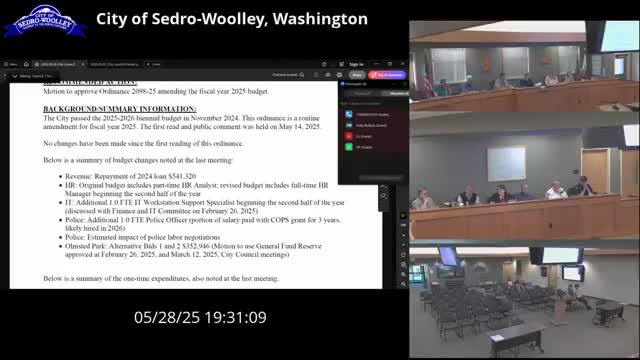Article not found
This article is no longer available. But don't worry—we've gathered other articles that discuss the same topic.
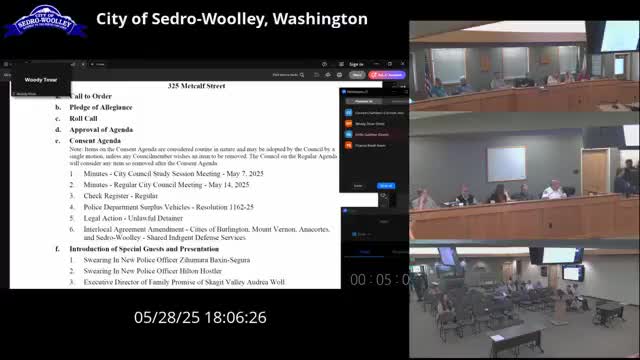
Family Promise says city funding helped stabilize more than 100 families; neighbors raise concerns about local impacts
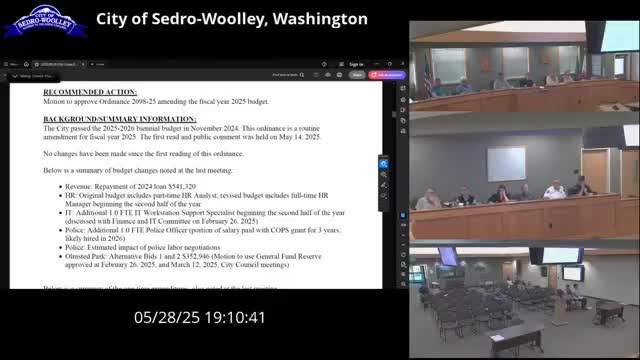
Council previews off‑street parking and loading code changes; staff to coordinate enforcement with police
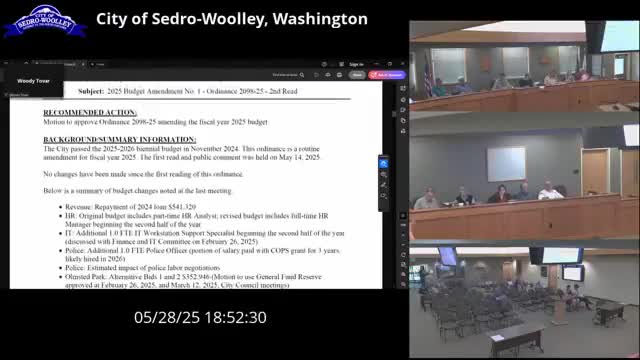
Council approves 2025 budget amendment after removing office, IT and HR items following debate
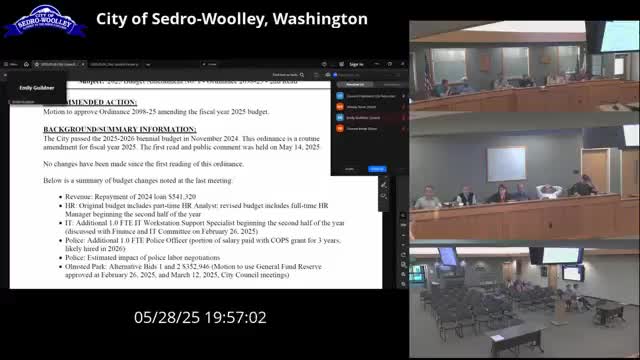
Council reviews transportation element update; staff to refine congestion and active‑transportation gaps
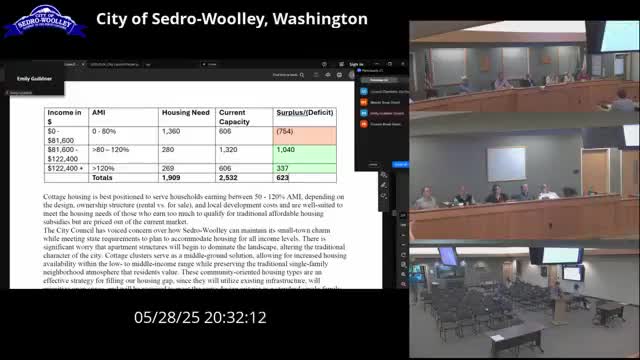
Council awards roundabout and paving contracts; Township Street and SR‑9 projects under way
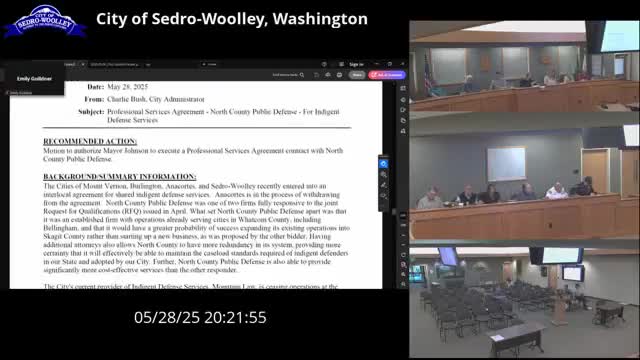
Council authorizes contract negotiations for regional indigent defense provider to start July 1
